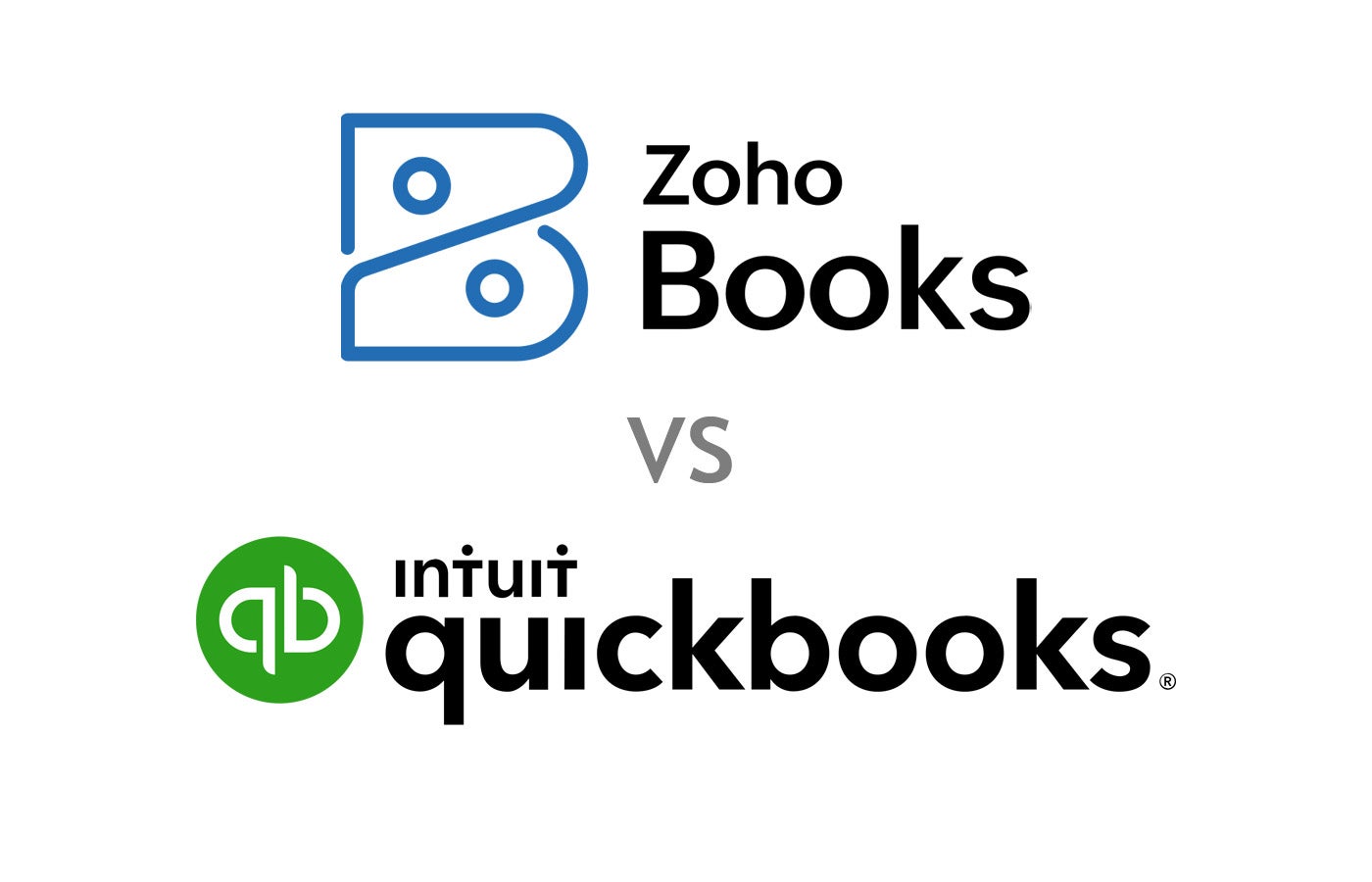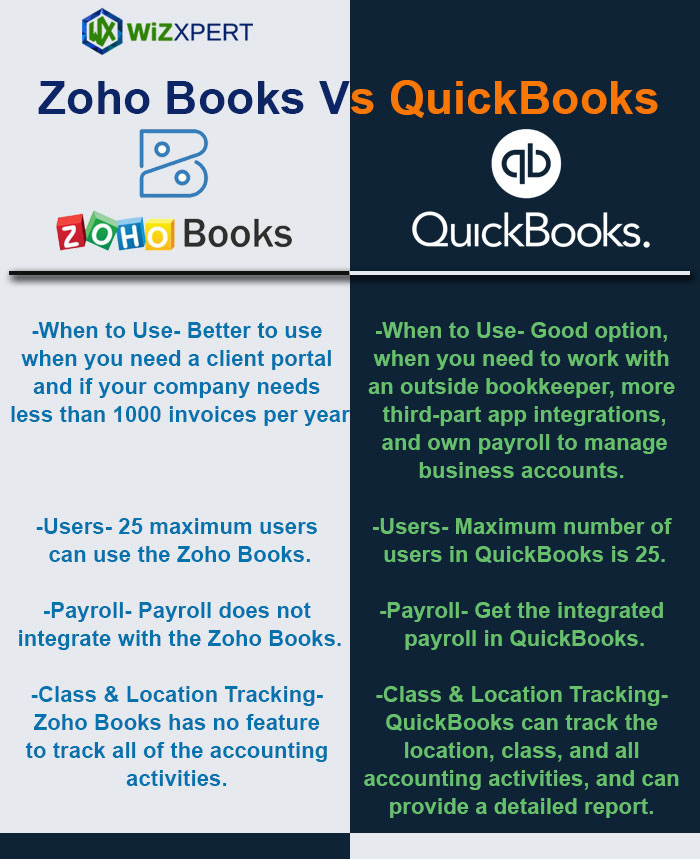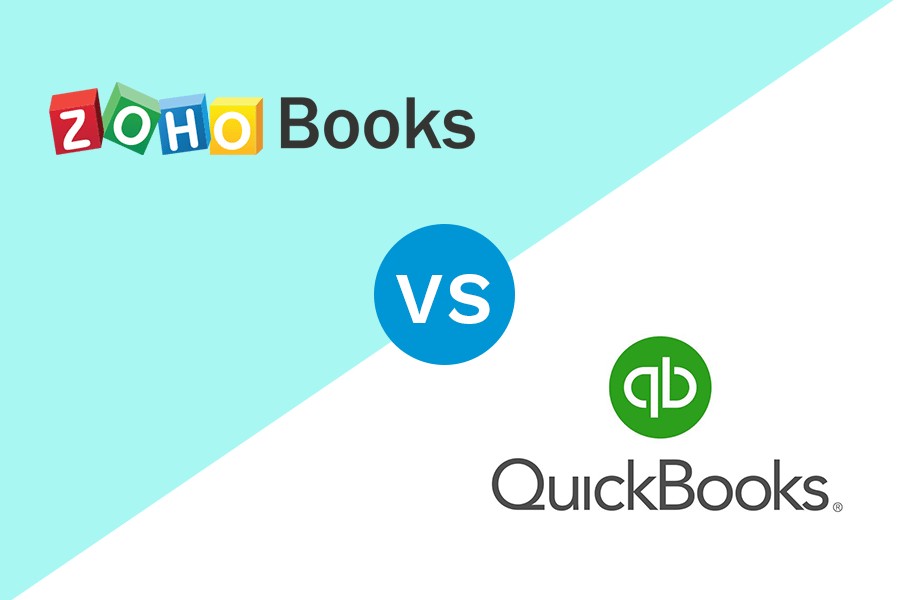Choosing the right accounting software can be a game-changer for your business. You want something that fits your needs, saves you time, and keeps your finances clear.
That’s why comparing Zoho Books vs QuickBooks is so important. Both are popular options, but which one is truly the best for your business? You’ll discover the key differences, benefits, and drawbacks of each. By the end, you’ll have a clearer idea of which tool will help you manage your money smarter and grow faster.
Keep reading to make the choice that’s right for you.
Key Features
Zoho Books and QuickBooks both offer solid invoicing and billing tools. Zoho Books lets users create custom invoices easily, while QuickBooks provides many invoice templates. Both support automatic payment reminders and online payments.
Expense tracking is simple in both software. Zoho Books offers real-time expense updates. QuickBooks connects with many banks for automatic expense import. Both help keep costs organized.
Bank reconciliation in Zoho Books is fast and automatic. QuickBooks also has bank feeds that match transactions quickly. Both help find errors and keep accounts accurate.
Inventory management is stronger in Zoho Books. It tracks stock levels, orders, and products. QuickBooks offers basic inventory but is less detailed.
Tax compliance features are built-in both apps. Zoho Books supports multiple tax rates and automated tax reports. QuickBooks helps prepare and file taxes with easy calculations.

Credit: www.techrepublic.com
User Interface And Experience
Zoho Books and QuickBooks both offer clean and simple layouts. Zoho Books uses a dashboard that shows all key info at once. QuickBooks has a menu that guides users through tasks step-by-step.
Customization is easier in Zoho Books. Users can change colors, layouts, and reports to suit their needs. QuickBooks provides fewer options but keeps things simple and clear.
Both apps have mobile versions. Zoho Books’ app is smooth and lets users do most tasks on the go. QuickBooks mobile app focuses on invoicing and expense tracking. Both work well but Zoho offers more features in the app.
Pricing And Plans
Zoho Books and QuickBooks offer several subscription tiers to fit different business needs. Zoho Books has three main plans: Basic, Standard, and Professional. QuickBooks provides Simple Start, Essentials, Plus, and Advanced plans.
Zoho Books plans are generally more affordable for small businesses. QuickBooks tends to be pricier but includes more features at higher tiers. Both services offer good value for money depending on your needs.
| Feature | Zoho Books | QuickBooks |
|---|---|---|
| Starting Price | $15/month | $25/month |
| Highest Plan Price | $40/month | $150/month |
| Free Trial | 14 days | 30 days |
| Demo Availability | Yes | Yes |
Both platforms offer a free trial. QuickBooks gives 30 days, Zoho Books 14 days. Demos are available to test features before subscribing. This helps users pick the best plan without risk.

Credit: www.wizxpert.com
Integrations And Add-ons
Zoho Books and QuickBooks both support many third-party apps. Zoho Books connects well with CRM, payment, and inventory tools. QuickBooks offers more app choices because it has been around longer.
Payment gateways are key for easy transactions. Zoho Books works with popular gateways like PayPal, Stripe, and Authorize.Net. QuickBooks supports many more, including Square and Apple Pay. This helps users get paid faster.
| Feature | Zoho Books | QuickBooks |
|---|---|---|
| Third-party Apps | Good selection; CRM, inventory | Wide selection; many industries |
| Payment Gateways | PayPal, Stripe, Authorize.Net | More options including Square, Apple Pay |
| Automation Tools | Basic workflows and reminders | Advanced automation with AI features |
Automation tools help save time. Zoho Books offers basic workflows and reminders. QuickBooks provides advanced automation and AI-powered tasks. This can cut down manual work a lot.
Customer Support
Zoho Books offers support through live chat, email, and phone. Support is available during business hours in most regions. QuickBooks provides 24/7 phone and chat support, making it easier to get help anytime.
Response time for Zoho Books is usually within a few hours during working days. QuickBooks often responds faster, sometimes in minutes, especially during peak hours.
| Help Resources | Zoho Books | QuickBooks |
|---|---|---|
| Knowledge Base | Detailed articles and guides | Extensive tutorials and FAQs |
| Community Forum | Active user community | Large user forum with expert answers |
| Video Tutorials | Available on website | Wide range on official site and YouTube |
Security And Data Privacy
Data encryption protects your information from hackers. Both Zoho Books and QuickBooks use strong encryption to keep data safe. This means your financial details stay private and secure during transfers.
User permissions control who can see or change data. Zoho Books lets you set different access levels for team members. QuickBooks also offers detailed permission settings to limit access and protect sensitive info.
Backup and recovery ensure your data is never lost. Zoho Books saves backups automatically and lets you restore files easily. QuickBooks provides regular backups too, helping you recover data after mistakes or problems.
Suitability For Business Types
Freelancers and solopreneurs benefit from simple, easy-to-use software. Zoho Books offers a clean interface with tools for invoicing and expense tracking. QuickBooks provides more features but can be complex for solo users. Both handle basic accounting well.
Small to medium enterprises (SMEs) need scalable solutions. QuickBooks supports multiple users and advanced reports. Zoho Books also scales but focuses on automation and integration with other Zoho apps. Both suit growing businesses with different priorities.
| Industry | Zoho Books | QuickBooks |
|---|---|---|
| Retail | Good for inventory and sales tracking | Strong POS and sales reports |
| Consulting | Simple billing and time tracking | Detailed project costing |
| Manufacturing | Basic inventory management | Advanced inventory and job costing |

Credit: fitsmallbusiness.com
Pros And Cons
Zoho Books offers an easy-to-use interface and strong automation features. It supports multiple currencies and provides customizable invoices. The software integrates well with other Zoho apps, making it good for businesses using Zoho products.
QuickBooks is widely known for its powerful accounting tools and strong bank integration. It offers advanced reporting and supports many third-party apps. QuickBooks suits businesses needing detailed financial analysis.
Both tools have limitations. Zoho Books can be less flexible for very large businesses. QuickBooks pricing can be higher and sometimes confusing. Some users find QuickBooks’ interface complex. Zoho Books has fewer third-party integrations compared to QuickBooks.
Frequently Asked Questions
What Are The Main Differences Between Zoho Books And Quickbooks?
Zoho Books offers affordable pricing and seamless integration with Zoho apps. QuickBooks provides advanced features and strong third-party support. Both handle invoicing, expenses, and reporting, but QuickBooks suits larger businesses, while Zoho Books is ideal for small to medium enterprises.
Which Software Is Better For Small Businesses, Zoho Books Or Quickbooks?
Zoho Books is better for small businesses due to its cost-effectiveness and easy-to-use interface. QuickBooks offers more advanced tools but can be pricier. Zoho’s automation and integration make it perfect for startups and growing companies with basic accounting needs.
How Does Zoho Books Compare To Quickbooks In Pricing?
Zoho Books has lower monthly fees and flexible plans suited for startups. QuickBooks pricing is higher but includes more comprehensive features. Zoho Books offers a free trial and affordable tiers, making it a budget-friendly option for small businesses.
Can Zoho Books And Quickbooks Integrate With Other Business Apps?
Yes, both Zoho Books and QuickBooks integrate with many apps. Zoho connects well with Zoho CRM and other Zoho tools. QuickBooks supports a wide range of third-party apps like PayPal and Shopify, enabling smoother business workflows.
Conclusion
Choosing between Zoho Books and QuickBooks depends on your business needs. Zoho Books suits small businesses with simple accounting tasks. QuickBooks offers more advanced features for growing companies. Both tools help track expenses, invoices, and taxes. Consider your budget, ease of use, and required features.
Try free trials to see which fits you best. Good accounting software saves time and reduces errors. Pick the one that feels right and supports your goals. Simple, effective, and reliable—these tools can help your business thrive.
